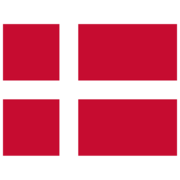Fiscal subject related
Other news from Denmark
Reminder: Denmark Introduced Updates to E-Invoicing Format OIOUBL 3
 Denmark
Author: Ivana Picajkić
Denmark
Author: Ivana Picajkić
Denmark will implement the OIOUBL 3 Invoice Package for e-invoicing, introducing enhanced compliance, interoperability, and alignment with European standards starting November 15, 2025. Key updates include clearer business and message-level responses, mandatory two-way profiles, and field adjustments to support structured data like environmental metrics. A phased migration plan ensures a smooth tr... Read more



Denmark Clarifies VAT Rules for Public Charging Station Concessions in New Tax Council Ruling
 Denmark
Author: Ivana Picajkić
Denmark
Author: Ivana Picajkić
Denmark's Tax Council has clarified that one-time payments received by public authorities for concession agreements on charging station operations are subject to VAT. Read more



Denmark's New Bookkeeping Act Takes Effect January 2025
 Denmark
Author: Ivana Picajkić
Denmark
Author: Ivana Picajkić
As of January 1, 2025, Denmark will implement new digital bookkeeping regulations as part of the Danish Bookkeeping Act. The Danish Business Authority has announced that all companies will be required to adopt a digital bookkeeping system capable of processing and storing electronic invoices, managing relevant documents, and supporting the SAF-T (Standard Audit File for Tax) format for data exchan... Read more



Denmark announces upcoming changes to its e-invoicing format.
 Denmark
Author: Ivana Picajkić
Denmark
Author: Ivana Picajkić
Denmark announces upcoming changes to its e-invoicing format. Denmark is set to implement significant updates to its e-invoicing system with the introduction of OIOUBL 3, a new version of its electronic invoicing format. This update was presented by Nemhandel (a Danish e-invoicing infrastructure) on November 21, 2024, and includes several key enhancements aimed at improving compliance with European standards and streamlining invoice processing. The OIOUBL 3 Invoice Package introduces mandatory invoice message responses, aligning with the European e-invoicing standard (EN 16931). The package consists of various components, including: Business Interoperability Specification (BIS) for invoices and credit notes. Message Level Response specifications, which separate business-level responses from message-level responses. A migration plan detailing essential dates for transitioning from the older OIOUBL 2.1 format to OIOUBL 3. Several critical changes are being introduced with OIOUBL 3: Separation of Responses: The new format distinguishes between message-level and business-level responses, requiring different profiles for each. Mandatory Two-Way Profiles: All users must receive invoice responses at a registered endpoint, eliminating the use of multiple profiles. Field Definitions and Interpretations: Free-text fields will now be read-only, while some structured fields will be editable. Clarifications on supported fields have also been provided. Revisions for Compliance: Adjustments have been made to ensure alignment with EN 16931, including remapping fields and changing calculations. For businesses sending invoices under the new OIOUBL 3 format, it is essential to register as suppliers in the Nemhandelsregistret (NHR) and adopt both mandatory document profiles. Invoice receivers will need to maintain compatibility with both OIOUBL 2.1 and OIOUBL 3 formats throughout the migration period. In addition, the Danish Business Authority has announced a migration plan, stipulating timelines for the migration between the current format, OIOUBL 2.1, and its replacer, OIOUBL 3: OIOUBL 3 release candidate: 15 November 2024; Deadline for remarks on release candidate: 6 March 2025; OIOUBL 3 final release: 10 April 2025; OIOUBL 3 voluntary support: 15 May 2025; OIOUBL 3 mandatory support: 15 November 2025; OIOUBL 2.1 no longer supported: 15 May 2026. These changes reflect Denmark's ongoing commitment to modernizing its e-invoicing framework and ensuring compliance with European standards. Read more



Digital Bookkeeping Obligation in Denmark
 Denmark
Author: Ivana Picajkić
Denmark
Author: Ivana Picajkić
Denmark's digital bookkeeping obligation requires businesses to use registered digital bookkeeping systems evaluated by the Danish Business Authority. Compliance begins on July 1, 2024, for businesses using registered systems, extends to non-registered system users on January 1, 2025, and includes personally owned companies exceeding DKK 300,000 annual turnover from 2026. Read more



Reminder - cash register system for restaurants and cafés in Denmark
 Denmark
Author: Ivana Picajkić
Denmark
Author: Ivana Picajkić
Restaurants and cafés in Denmark must ensure their cash register systems are efficient, user-friendly, and compliant with new 2024 bookkeeping regulations. Non-compliance with these standards could result in penalties. Read more


